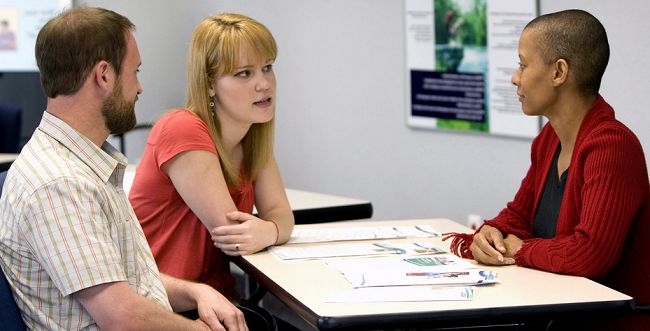- Do not corner the teacher in the morning
If you want to discuss queries and issues with your child’s teacher then take an appointment to talk to the teacher after the school. Gatecrashing is incredibly annoying for teachers as it disrupts their flow of getting started.
- Try to fix all the problems with class teacher
There is no wonder a human can make mistakes and there could be things that can upset you or your child, but maintain a perspective to the problems. There was an incident when a teacher mispronounced a child’s name, the parents went straight to the head master and the issue swelled up.
Check out – Parents And Teachers Are Partners In Education
- Always make a clear correspondence
If there is an envelope labeled “camping fee” without any name then how long would the teacher be able to know whom it’s from. That’s why write the correspondence.
- Accept that your child may behave differently at school
Your child may be very sweet and well behaved at home, but that doesn’t guarantee that your child is the same at school. It is impossible to explain that little Sam has ripped a classmate’s coat for the second time in a week, to those parents who thinks their child is too adorable for a crime like that.
- Expect part-timers not to be psychic
Many students have part-time teachers who teach at specific days only. In such a case, look for the concerned teacher only. If you talk to the wrong teacher, then chances are that you might annoy the teacher even when he has no idea about what happened the other day.
Also read – Tips For Successful Parent-teacher Conferences At Your Child’s School
- Pay for the school trips
There are some parents who never pay for the school trips or the swimming lessons because teachers have written at the bottom of the letters that the contributions are voluntary. You should understand that schools have budget deficits and if capable parents won’t contribute then how can such activities be successful.
- Teach them being independent
Parents are excited to teach their child reading and writing before enrolling them in school. But what actually would be beneficial to the teacher would be if you teach them how to wear the shoes, open the lunchbox, and getting dressed. The same applies to older children who often reach the PE classes late because they take a lot of time to change while a child by the age of 8 should be able to change within 15 minutes.
- Don’t over-expect from your kid
Don’t expect your child to be already on writing level 100 when he has just started to read and recognize letters. The same is for those parents who want extra work for their child at home when their child is actually lagging behind the school’s curriculum.
- Follow the school rules
Once, a teacher had put a child in detention because the child asked the teacher to shut up and the next day the parents came fuming that the teacher was being too harsh, as the kid has not used the F-words or anything. Familiarize yourself with the school’s norms and behavioral policy before objecting any punishments.
- Encourage good housekeeping
The brain works sharply in a tidy environment, in general. Make sure your child does his part in keeping the class clean. Teach your child to put the coat and bags well on their pegs at the start of the day, this not only helps the teachers but also develops a good habit in your child.
- Label the Uniform
You cannot complain if your child loses his coat or shoe somewhere when you had not put his name on the uniform at the first place.
Never miss the Parents’ evening
The teacher has freed up his time and even sabotaged some work to talk to you about your child. Respect that. Always show up for the parents’ evening as your absence might hurt the teacher’s sentiments.



